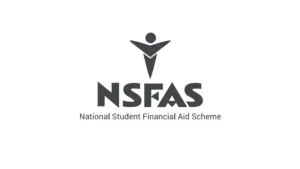In recent years, the rise of unemployment has prompted many individuals to seek out financial support through government schemes, one of the most significant being the Unemployment Insurance Fund (UIF). In South Africa, the UIF is designed to assist workers who have lost their jobs by providing temporary financial relief. However, the growth of this system has also led to the emergence of UIF Scams targeting vulnerable jobseekers, making it essential for individuals to be aware of the risks and learn how to spot and avoid these fraudulent activities.
Understanding the UIF System
Before diving into the different types of scams, it is essential to first understand what the UIF is and how it operates. The UIF is a government-run program managed by the Department of Employment and Labour in South Africa. It offers temporary financial assistance to workers who become unemployed, as well as to those who are unable to work due to illness, maternity leave, or adoption.
Employees who contribute to the UIF during their employment are eligible to receive these benefits, which can assist them during their time of unemployment. The application process for UIF benefits requires workers to submit the necessary documents and follow specific procedures.
However, while the UIF was designed to provide relief, it has unfortunately become a target for scammers looking to exploit desperate individuals. Below are common types of UIF scams and helpful tips on how to identify and avoid them.
Common Types of UIF Scams
- Fake UIF WebsitesOne of the most common forms of UIF scams involves fraudulent websites designed to appear similar to the official UIF portal. These sites often look convincing, mimicking the government’s layout, colors, and logos. They are designed to steal personal information, such as ID numbers, banking details, and employment history, under the pretense of helping the applicant apply for UIF benefits.
How to Spot Fake Websites:
- Check the website’s URL. Official government sites will have a “.gov.za” domain, while scam sites may have suspicious or misspelled URLs.
- Look for signs of security. Genuine websites will have “https://” in the URL, and there may be a padlock icon next to the URL to signify that the website is secure.
- Always navigate to government websites directly by typing the address into your browser instead of clicking on links sent via email or social media.
- Phishing EmailsScammers frequently use phishing emails to impersonate UIF officials. These emails may claim that the recipient is eligible for a UIF payout, asking them to click on a link to complete the application. The link often leads to a fake website designed to collect personal information. Some emails may also include attachments containing malware that can infect your computer or phone.
How to Spot Phishing Emails:
- Be wary of unsolicited emails. The UIF will typically not contact you out of the blue, especially if you have not applied for benefits.
- Look for spelling and grammatical errors in the email. Official government communications are usually professionally written.
- Don’t click on links or download attachments from unknown sources. Instead, visit the official UIF website and navigate to the correct section to complete any necessary steps.
- Fake UIF Call CentersSome scammers set up fake call centers that contact individuals claiming to be from the UIF. They may offer to assist with applications for a fee, asking for banking details or payment upfront. These scammers often use high-pressure tactics to make individuals feel as though they must act immediately to receive assistance.
How to Spot Fake Call Centers:
- UIF officials will never ask for payment in exchange for processing your claim. Any request for a fee is a major red flag.
- If the caller pressures you for personal details, such as bank account information, hang up immediately. Always verify the authenticity of the call.
- Call the UIF directly using the official contact details from their website if you are ever in doubt about a call you received.
- Social Media ScamsSocial media platforms are another avenue where scammers try to exploit UIF applicants. Fraudulent individuals often create fake profiles or pages claiming to be affiliated with the UIF and offer assistance in exchange for payment. These scammers might promise a quick application process or a guaranteed payout, but once the money is transferred, the individual disappears.
How to Spot Social Media Scams:
- Be skeptical of anyone offering “guaranteed” UIF payments or fast-tracked applications.
- Always verify the official UIF social media accounts. Look for verified checkmarks and official links.
- Do not engage with individuals or businesses claiming to be able to help you receive benefits faster, especially if they ask for payment.
- Unsolicited SMS MessagesAnother scam method involves receiving unsolicited SMS messages that claim the recipient is eligible for UIF benefits. These messages may include links that lead to fake websites designed to steal your personal information or install malware on your phone.
How to Spot SMS Scams:
- Ignore SMS messages from unknown numbers that offer UIF assistance or ask for personal information.
- Do not click on links or reply to SMS messages offering financial assistance.
- Always use official channels to verify any claims regarding your UIF eligibility.
How to Avoid UIF Scams
- Stay Informed and Updated: Knowledge is the best defense against scams. Keep up-to-date with official communications from the Department of Employment and Labour and understand the legitimate process for applying for UIF benefits. Always refer to the official UIF website and government publications for the latest information.
- Verify Before You Act: Before providing any personal information or making payments, always verify the legitimacy of the organization or individual contacting you. Use official contact numbers and email addresses to confirm details, and avoid clicking on links from unknown sources.
- Protect Your Personal Information: Be cautious about sharing personal details online. Never provide your banking or identity details unless you are sure the request is legitimate. Official UIF claims will never require upfront payments or personal information over email or social media.
- Report Suspicious Activity: If you come across any scam attempts or fraudulent activity, report it to the authorities immediately. The South African Police Service (SAPS) and the Department of Employment and Labour both encourage individuals to report scams. Reporting helps authorities take action against these fraudsters and prevent others from being victimized.
- Consult Professionals: If you are ever in doubt about the legitimacy of a claim, seek guidance from a professional, such as a lawyer, or contact the UIF directly for assistance. It is always safer to consult someone who can help you navigate the process rather than risk falling victim to a scam.
Check also: Workplace Illness & UIF: Can You Get Paid While Recovering?
UIF scams are a growing concern that can have serious financial consequences for individuals who are already in vulnerable positions. By understanding the types of scams and how they operate, individuals can take steps to protect themselves. Always be cautious about sharing personal information, verify the authenticity of any communication, and report suspicious activity to the authorities.
By staying vigilant and informed, you can avoid falling victim to UIF scams and ensure that you receive the assistance you are entitled to.










